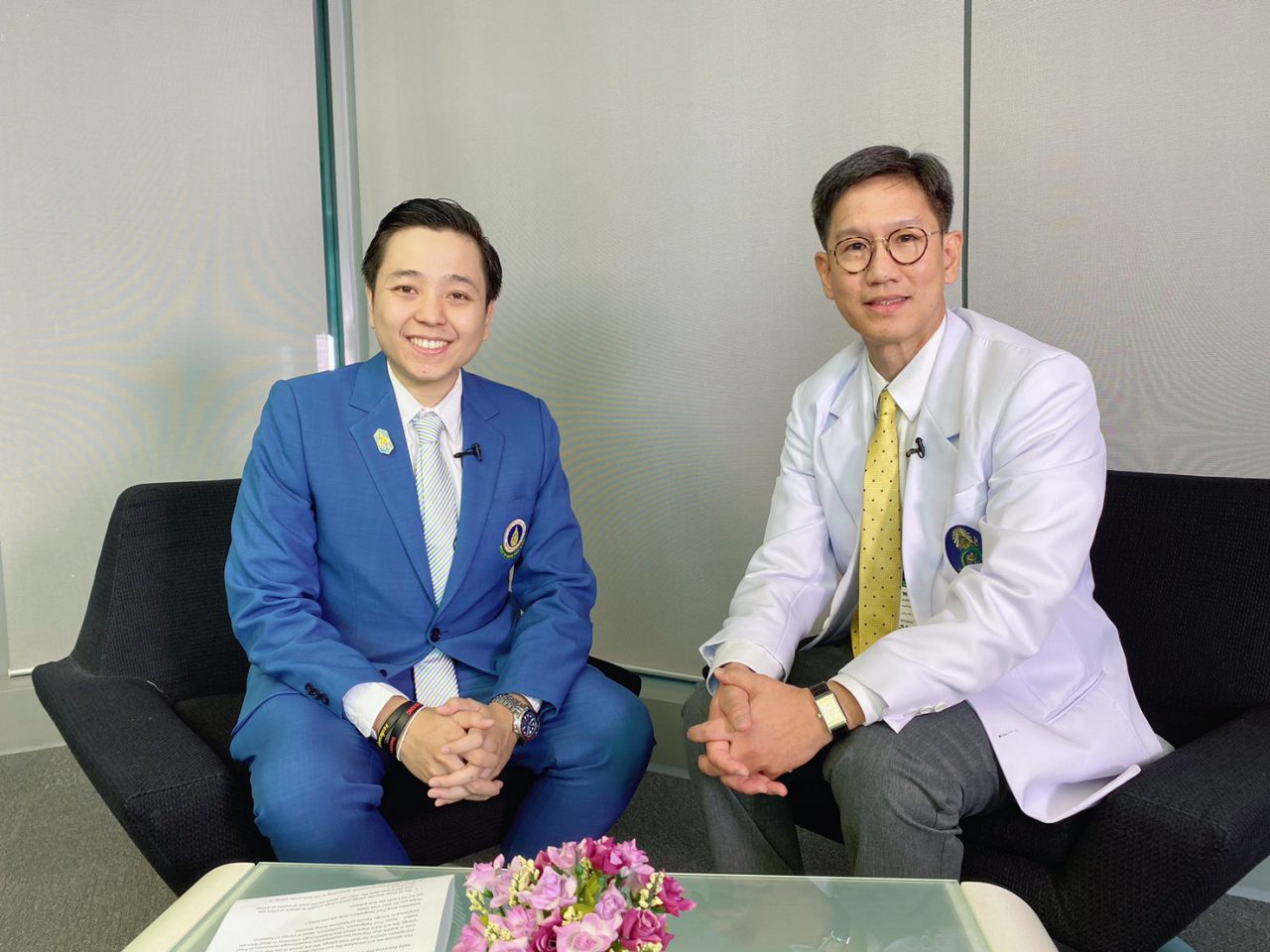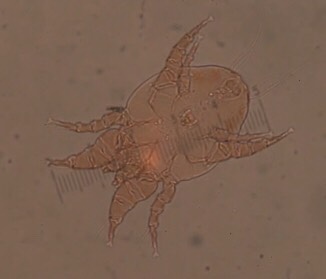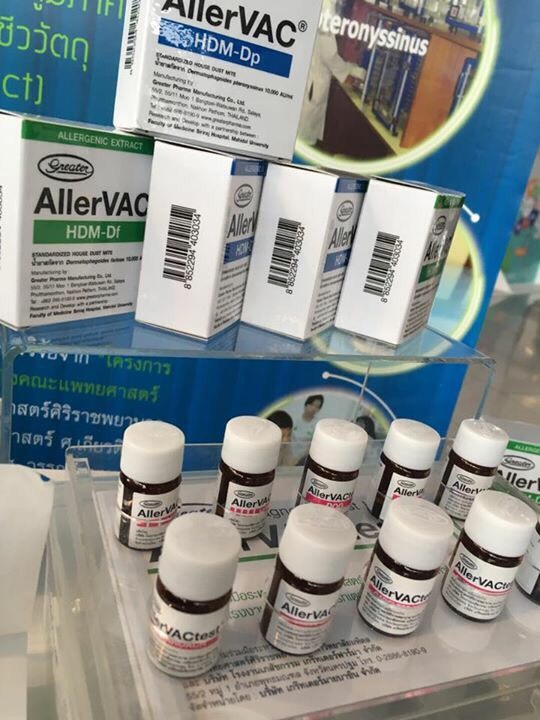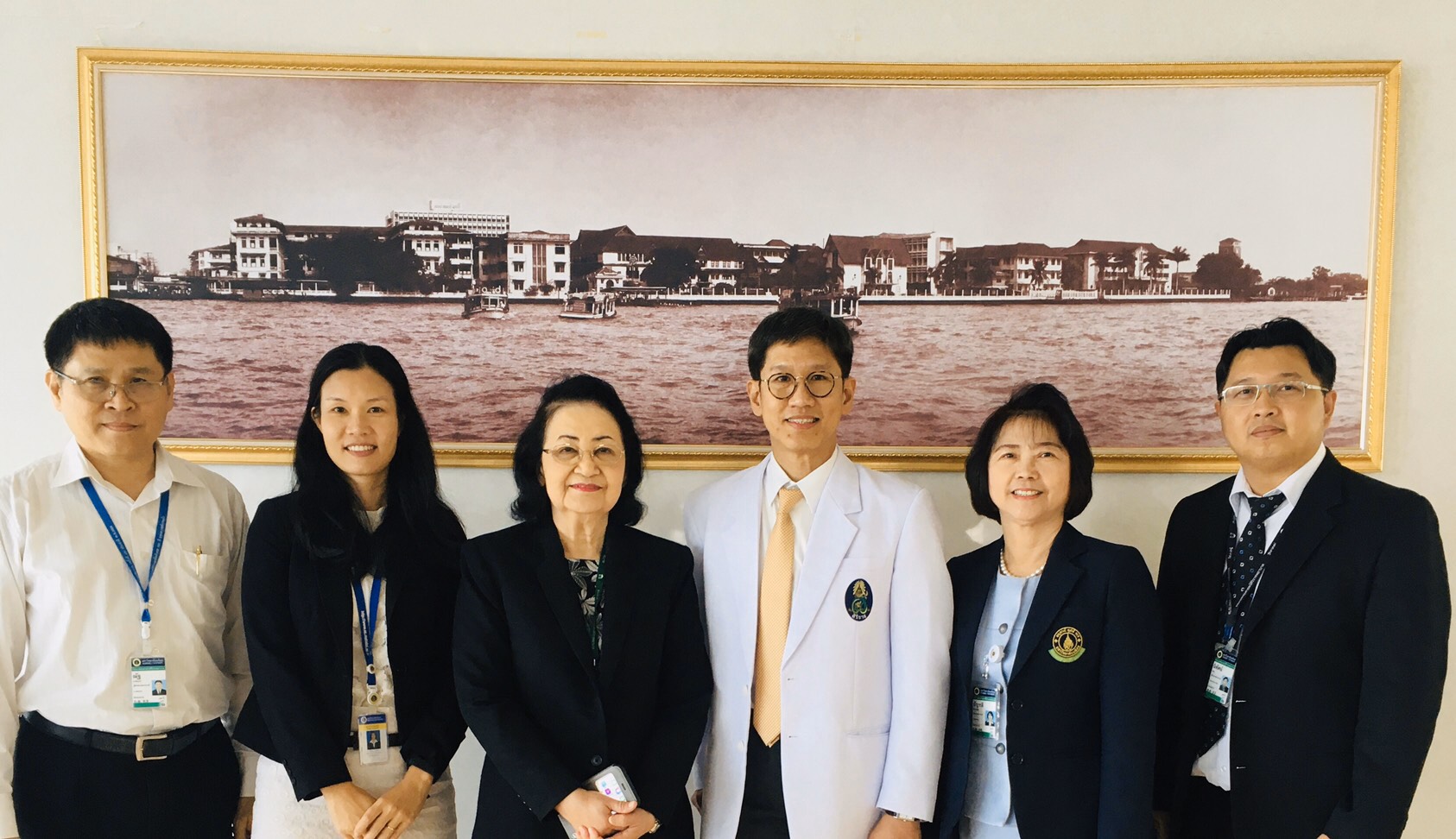Allergy is one of the most important chronic diseases. If the treatment is not appropriate, it may result in a long-term impact on the patient’s quality of life. Previously, the diagnosis of allergies relied on various imported reagents, which are expensive. Moreover, some allergens are not substances that Thai people are allergic to. Therefore, there are collaborations in many specialists, including medical doctors, scientists, and pharmaceutical companies, to research and develop diagnostic tests and therapeutic vaccines. This collaboration results in an effective diagnostic test kit and therapeutic vaccine. In this article, we are honored to have Assoc. Prof. Dr. Pongsakorn Tantilipikorn, Head of Center of Research Excellence in Allergy, Faculty of Medicine Siriraj Hospital to share the breakthrough innovation of the therapeutic vaccine and diagnostic test kit to treat dust mite allergy with us.

The prevalence of allergy in Thailand compared to the world is around 20 – 40%. The percentage at Siriraj Hospital is at a high level compared to the hospitals worldwide.
“Allergy can affect patient’s quality of life as it may lead to comorbidities such as sleep apnea, snoring, and asthma as well,” said Prof. Tantilipikorn
Siriraj takes allergy into account very seriously, the same as the prevalence of allergy patients in Thailand. There are three principles in taking care of patients with allergies. First, identify whether or not the patient is an allergy to something. Second, medication and the last principle use the substance that patients allergy to and put into their bodies to make them less allergic.
“To identify that is the patient allergic to something, we need a diagnostic test, and if the patient doesn’t respond well to the medication, then we need the therapeutic vaccine. This reason inspired us as a team to invent the diagnostic test and proper treatment for our patients,” Prof. Tantilipikorn explained.

The key success of this breakthrough innovation seems to be the huge support from Siriraj Executive Board and a multidisciplinary team.
“Our multidisciplinary team, e.g., scientists, physicians, as well as staff, are working together and could overcome many obstacles. The main obstacle that we have to overcome is how to endorse the Thailand FDA on mass production of our vaccine. With the great support from our faculties and staff, we finally gained approval and now standing in front of all ASEAN countries in this field.”

What Thai people will receive from this breakthrough innovation is knowing what makes them allergic by using the diagnostic test kit and receiving proper treatment by the therapeutic vaccine, which allows them to live their lives like ordinary people.
“This is what we call translational research from the laboratory to the bedside and clinical practice.”
The disadvantage of the therapeutic vaccine required the patients to come to the hospital every week to receive an allergen at an increasing rate to create immunization on what the patient is allergic to it. However, the pros of this therapeutic vaccine seem to be much more worthwhile than the cons.
“This is the only way that we can permanently cure the allergy in the patients for the rest of their life even though the drawback requires them to come to our hospital for 4 – 5 years. We also need to be careful in giving the patients an allergen; otherwise, the overdose of a vaccine may result in an asthmatic attack or shock. In this matter, we are having the team monitor the amount of the vaccine and respond rate carefully.”
The road of the therapeutic vaccine in Thailand is just the beginning, and there are many more exciting innovations to pop out in the future. One of the future development is eradicating the cons of the therapeutic vaccine nowadays.
“We have nearly completed the non-injection vaccine, which we will try to launch soon, so this can allow the patients to vaccinate themselves at home under the medical prescription order, i.e., intranasal vaccine and sublingual delivery.”
Working together with mutual trust is the motto of Prof. Pongsakorn and his multidisciplinary team.
“As a team, we are all optimistic about the obstacles and push our efforts together with trust to recreate good things to our society and benefits of mankind,” Prof. Tantilipikorn ended up.

 Published
Published